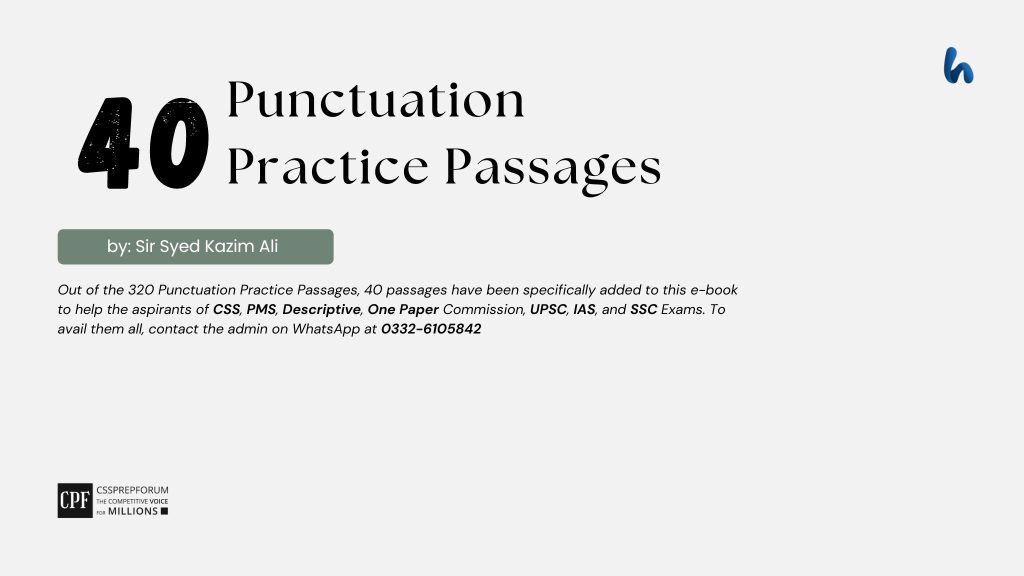This article comprehensively overviews the most important information technology terminologies crucial for CSS and PMS aspirants. Learning to write them will enable aspirants to navigate complex political concepts effectively.

Learning to write subject terminologies is always essential for competitive exam students, especially CSS and PMS. This practice gives aspirants a deeper understanding of complex concepts, ultimately helping them articulate their thoughts clearly. Learning to write these terms appropriately not only enhances comprehension but also equips aspirants to engage effectively with exam essays. For example, in fields like political economy, acquaintance with terms such as “globalization” and “trade barriers” helps aspirants confidently analyze and debate relevant issues. After learning these terminologies, aspirants can tackle exam questions more adeptly because they can apply these terms contextually, demonstrating their knowledge and critical thinking skills. Therefore, learning subject-specific terminology is not just about learning words or vocabulary; it’s all about improving exam scores.
I have compiled the following terminologies from various reputable sources: dictionaries, websites, books, and magazines. This compilation is intended to aid my students in enhancing their vocabulary and effectively articulating their thoughts in essays, whether for compulsory or optional subjects.
Important Information Technology Terminologies
| Information Technology (IT) | |
| The use of computers to store, retrieve, transmit, and manipulate data. | |
| Computer | |
| An electronic device that can process information. | |
| Software | |
| A set of instructions that tells a computer what to do. | |
| Hardware | |
| The physical components of a computer. | |
| Data | |
| Information that is processed by a computer. | |
| Central Processing Unit (CPU) | |
| The brain of a computer that performs calculations and instructions. | |
| Motherboard | |
| The main circuit board of a computer that connects all the components. | |
| Memory | |
| A device used to store data and instructions. | |
| Storage Device | |
| Devices used to store data, such as hard drives, solid-state drives (SSDs), and flash drives. | |
| Input Devices | |
| Devices used to enter data into a computer, such as keyboards, mice, and scanners. | |
| Operating System | |
| Software that manages the resources of a computer. | |
| Application Software | |
| Software designed for specific tasks, such as word processing, spreadsheets, and games. | |
| Programming Languages | |
| Languages used to write computer programs. | |
| Algorithms | |
| A set of instructions to solve a problem. | |
| Software Development Life Cycle (SDLC) | |
| The process of creating software. | |
| Network | |
| A group of computers connected together. | |
| Local Area Network (LAN) | |
| A network that connects computers within a limited area. | |
| Wide Area Network (WAN) | |
| A network that connects computers over a large geographic area. | |
| Internet | |
| A global network of computers. | |
| Internet Protocol (IP) | |
| A set of rules that governs communication on the internet. | |
| Database | |
| A collection of related data. | |
| Database Management System (DBMS) | |
| Software used to create and manage databases. | |
| Relational Database | |
| A database that stores data in tables. | |

| SQL (Structured Query Language) |
| A language used to interact with databases. |
| Data Mining |
| The process of extracting information from large datasets. |
| Cybersecurity |
| The protection of computer systems and networks from attacks. |
| Malware |
| Malicious software. |
| Phishing |
| A type of social engineering attack that attempts to trick users into revealing personal information. |
| Firewall |
| A network security system that monitors and controls network traffic. |
| Encryption |
| The process of encoding data to make it unreadable. |
| Cloud Computing |
| The delivery of computing services over the internet. |
| Infrastructure as a Service (IaaS) |
| The delivery of computing resources as a service. |
| Platform as a Service (PaaS) |
| The delivery of a cloud-based platform for developers. |
| Software as a Service (SaaS) |
| The delivery of software applications over the internet. |
| Hybrid Cloud |
| A cloud computing environment that combines public and private clouds. |
| Artificial Intelligence (AI) |
| The simulation of human intelligence in machines. |
| Machine Learning |
| A type of AI that allows computers to learn from data. |
| Deep Learning |
| A subset of machine learning that uses artificial neural networks. |
| Natural Language Processing (NLP) |
| The ability of computers to understand and process human language. |
| Robotics |
| The design and construction of robots. |
| Internet of Things (IoT) |
| The interconnection of physical devices, vehicles, and buildings embedded with electronics, software, sensors, and network connectivity. |
| Hypertext Markup Language (HTML) |
| The language used to create web pages. |
| Cascading Style Sheets (CSS) |
| A language used to style web pages. |
| JavaScript |
| A programming language used to create interactive web pages. |
| Smart Home |
| A home equipped with devices that can be controlled remotely. |
| Smart City |
| A city that uses technology to improve the lives of its citizens. |
| Industrial Internet of Things (IIoT) |
| The use of IoT in industrial settings. |
| Internet of Medical Things (IoMT) |
| The use of IoT in healthcare. |
Click on Any to Start Reading



FAQs About Sir Syed Kazim Ali

CSS Solved Past Papers’ Essays
Looking for the last ten years of CSS and PMS Solved Essays and want to know how Sir Kazim’s students write and score the highest marks in the essays’ papers? Then, click on the CSS Solved Essays to start reading them.
CSS Solved Essays
CSS Solved General Science & Ability Past Papers
Want to read the last ten years’ General Science & Ability Solved Past Papers to learn how to attempt them and to score high? Let’s click on the link below to read them all freely. All past papers have been solved by Miss Iqra Ali & Dr Nishat Baloch, Pakistan’s top CSS GSA coach having the highest score of their students. General Science & Ability Solved Past Papers











